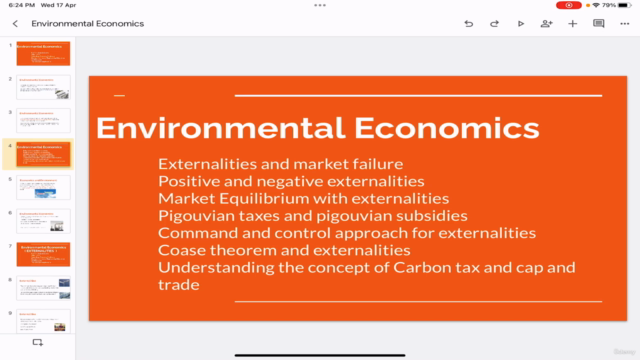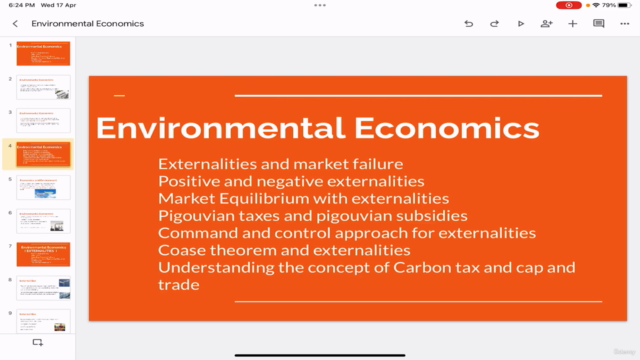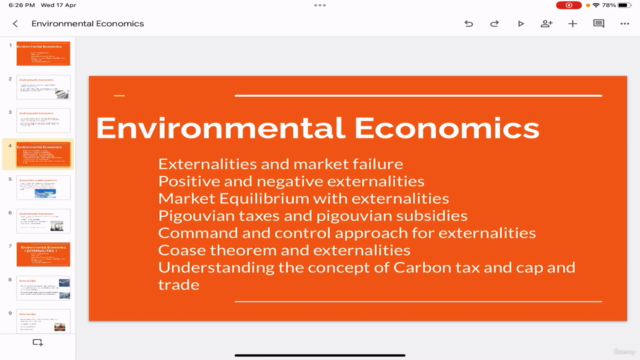Economics for everyone:Environmental economics concepts

Why take this course?
🌱 Course Title: An Introduction to Environmental Economicscourse
🧭 Course Headline: Discover the Intersection of Economics & Ecology in Our Environmental Economicscourse!
📘 Course Description:
Embark on a transformative learning journey with our Environmental Economicscourse, meticulously designed for individuals passionate about the environment and its intersection with economic principles. This course serves as an accessible gateway to understanding the core concepts of environmental economics, a field pivotal in addressing pressing environmental issues like water pollution, air pollution, and climate change.
🔍 What You'll Learn:
- Core Concepts: Dive into the fundamental aspects of environmental economics, exploring its significance in policy-making and sustainable development.
- Practical Focus: Engage with real-world case studies that bring to life the theoretical concepts and illustrate their practical applications.
- Problem Solving: Gain the skills to apply your knowledge to a myriad of environmental problems, equipping you with a robust toolkit for analysis and decision-making.
👀 What is Environmental Economics? Environmental economics is an interdisciplinary field that analyzes how economic forces affect the environment and how environmental considerations influence economies. It encompasses:
- Studying Impacts: Assessing the impact of environmental policies and devising solutions to problems arising from them.
- Incentive-Based Strategies: Exploring approaches that use economic incentives, such as cap-and-trade systems, to encourage environmentally responsible actions.
- Externalities: Understanding and addressing the additional costs or benefits of business activities that affect third parties, often referred to as 'negative externalities.'
- Valuing Public Goods: Calculating the true value of environmental resources like clean air and water, which are shared globally and thus require international cooperation.
👩🔬 What Environmental Economists Do: Environmental economists play a critical role in shaping policies that protect the environment while fostering economic growth. Their work can lead to:
- Prescriptive Regulations: Crafting detailed government regulations that directly dictate specific measures to mitigate environmental harm.
- Market-Based Regulations: Implementing economic strategies that use incentives to drive behavioral change, such as cap-and-trade programs or carbon taxes, without specifying how companies must reduce emissions.
🔥 Real-World Applications: Through case studies and interactive discussions, you'll explore the practical applications of environmental economics in various sectors. You'll learn to:
- Analyze Environmental Policies: Evaluate how different policies can impact both the environment and economic outcomes.
- Innovate with Market Mechanisms: Discover innovative market-based solutions that balance environmental stewardship with economic efficiency.
- Assess Economic Instruments: Understand the strengths and limitations of various economic tools like taxes, subsidies, and tradable permits.
Join us in this comprehensive course to become an informed advocate for sustainable development, equipped with the knowledge to influence environmental policies and drive meaningful change. Let's uncover the synergy between economics and ecology together! 🌱💰
Enroll now and be part of a community committed to understanding and shaping the future of our planet's economy and environment! 🌍✨
Course Gallery




Loading charts...